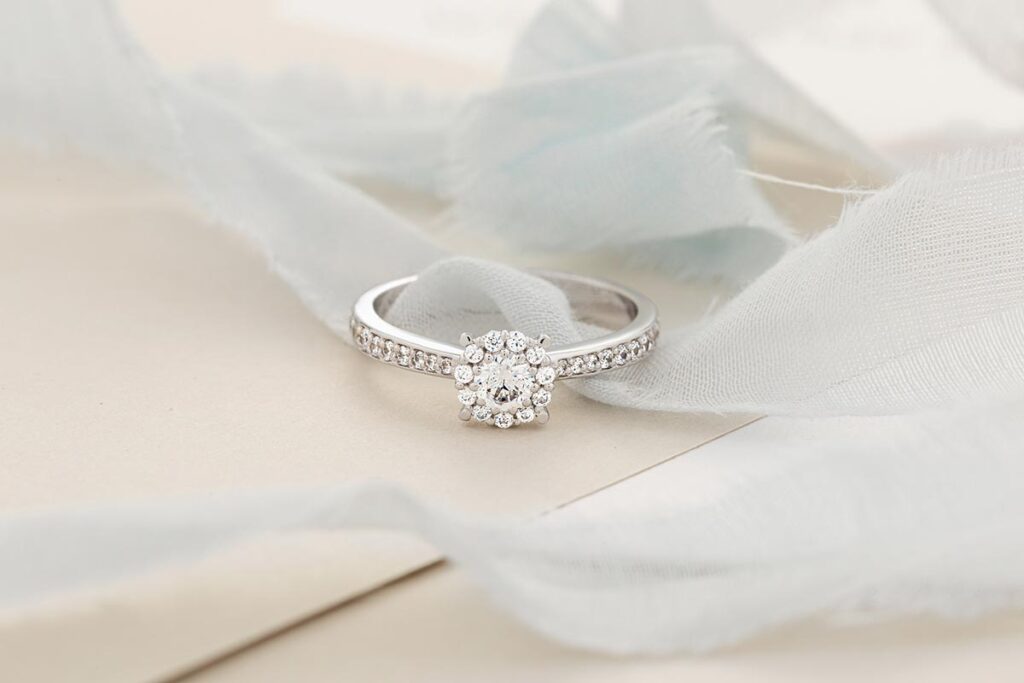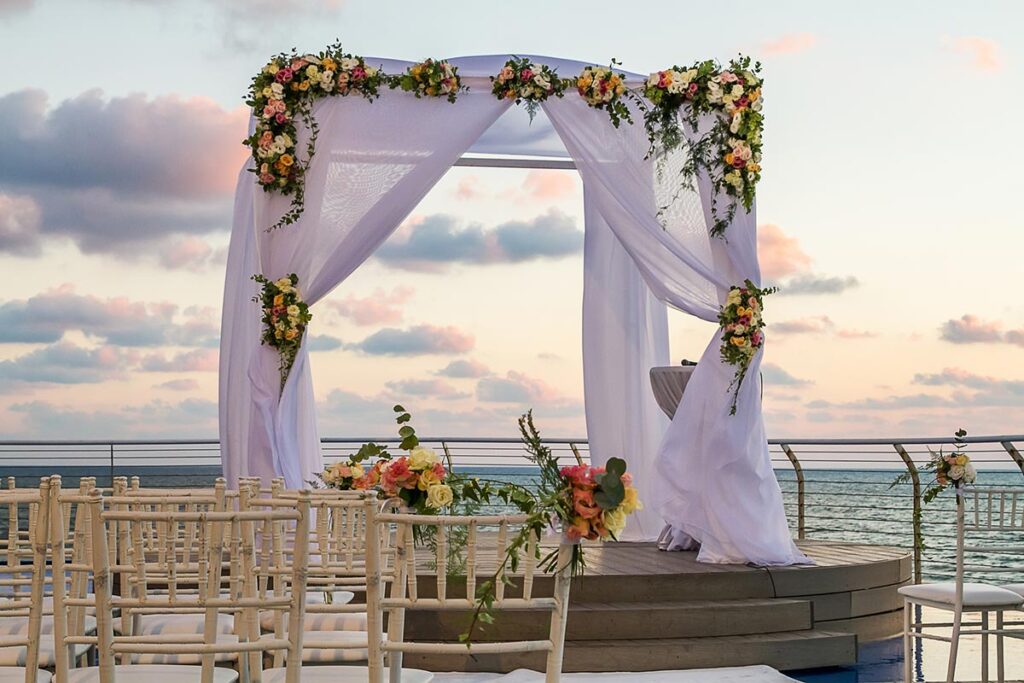
When you picture a Jewish wedding, what comes to mind? You might think of attendees in formal suits and dresses, ceremonies with structured seating, and sending RSVPs well in advance. Not in Israel!
As someone who just got married in Israel with many guests flying in for the big day from America, they experienced a few culture shocks. Let’s explore the striking cultural differences between American and Israeli weddings that make the celebrations in Israel unique!
Read more: Your ultimate guide to a traditional Jewish wedding
1. The dress code
It’s well-known that in Israel, casual clothing is the norm. Even in corporate offices, you’re more likely to spot jeans and t-shirts than formal attire. So, it shouldn’t come as a shock that this laid-back approach to clothing extends to weddings as well. Instead of having specific dress codes, the assumption is that weddings are always casual.
It’s not uncommon for male wedding guests to wear jeans. In fact, it is pretty unusual to see anyone in a suit other than maybe (and that’s a loose maybe) the groom. While more religious attendees might don suits, it’s often a reflection of their daily attire rather than a nod to the wedding’s formality.
As for female guests, a simple sundress usually fits the bill, though some women opt for pants and a nice top. At my own wedding, one of the guests arrived in jean shorts! To be fair, it was extremely hot that day and the venue was outdoors.
2. The gifts
In the U.S., it’s common for couples to have a wedding registry. In Israel, however, such registries are far less common, and cash gifts are the norm. Upon entering an Israeli wedding, you’ll typically see a table set up with a stack of envelopes, pens, and a safe. Here, attendees jot down well wishes on the envelopes and insert their financial gift.
The tradition of cash gifts aids newlyweds in offsetting wedding expenses and kickstarting their married life. The unwritten rule of thumb is that your gift should “cover your plate,” with contributions typically starting at around 250 – 300 NIS per attendee (about $75). However, close friends and family often give even more generously, sometimes donating amounts in the thousands.
3. Speedy engagements

Israeli engagements tend to be brief, usually lasting between 3-6 months. This might come as a surprise to many Americans who might have lengthier engagements of a year or two, especially when aiming for a specific venue or date. This impacts the invitation timeline.
In the U.S., it’s common to send out “save the dates” well in advance, followed by formal invitations closer to the wedding date. However, in Israel, sending out any type of wedding invitation more than 3 months before your wedding ahead is considered out of the ordinary.
A significant factor behind these different engagement timelines is the wedding scheduling itself. American weddings typically take place on the weekends, limiting the number of available dates. In contrast, Israeli weddings are more flexible, happening almost every night of the week except Friday night and Saturday. It is not uncomon for Israelis to hold weddings on a Sunday evening or even to attend multiple ceremonies in one week.
As a result, in Israel, it is much easier to find an open wedding venue. It is normal to have a wedding on a Sunday night or even multiple weddings in one week. Also, the industry moves faster here. Our centerpiece vendor asked me to call back 3 days before the wedding, noting that a month in advance was “too soon.”
4. The huppah ceremony

Unlike the typically structured and formal ceremonies in the U.S., the Israeli huppah ceremony is more spontaneous. Typically, most guests stand rather than sit during the ceremony. It is not uncommon for the crowd to gather close to the huppah once the bride and groom are under it and to cheer and holler throughout the ceremony.
Another major difference is that most Israeli weddings don’t have an extensive bridal party. Under the huppah, you’ll typically find only the bride and groom, their parents, and the officiating rabbi. This means that there isn’t a prolonged entrance procession. Often, only the bride, and occasionally the groom, walk down the aisle.
Additionally, right after the wedding ceremony, as soon as the groom breaks the glass, the entire crowd rushes the huppah to congratulate the newlyweds. Everyone screams, “mazal tov!” and it is a moment filled with joy, albeit a bit overwhelming. The newlywed couple gives out hugs and blessings to each individual who rushes to join them under the chuppah. Although this outburst of celebration is not unique to Israeli weddings, the environment can feel a bit more spontaneous and casual.
5. The magnet photographer
Have you ever been in an Israeli home and noticed their fridge is covered in magnetic photos? These were likely taken at various weddings or other events that the person has attended.
Magnet photographers are an integral part of Israeli weddings, often becoming the most sought-after person at the celebration. Wedding guests will crowd around, waiting for the photographer to take their photo. They often end up leaving with half a dozen new additions for their refrigerator door. The bride and groom also get a copy of the magnets at the end of the night for their own keepsake.
Originally Published Aug 18, 2023 10:34AM EDT
